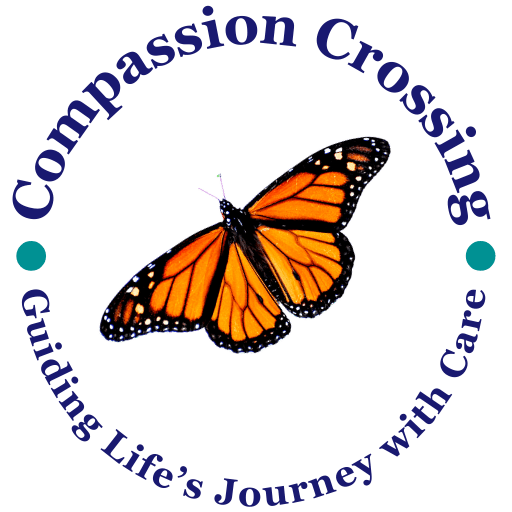Navigating Medication-Induced Swelling in Older Patients

This article delves into the common medications that can lead to swelling in geriatric patients, with a focus on those receiving end-of-life care. It provides insights into prevention, management, and the importance of informed healthcare decisions.
Antipsychotics & Dementia Risk: A Critical Analysis
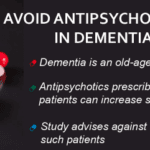
Unveiling the connection between antipsychotic drugs and dementia, this article delves into how these medications may elevate the risk or exacerbate symptoms. It provides a thorough examination of current research, expert opinions, and alternative approaches to managing dementia.
Understanding Risk Reduction in Terminal Illness

This guide helps families of terminally ill patients comprehend absolute vs. relative risk reduction. It’s a resource for making educated choices about medication continuation, tapering, or cessation in collaboration with healthcare professionals.
Understanding Aggression in Elderly Patients with Dementia
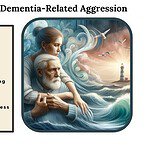
Dementia can lead to aggressive behavior in elderly patients, causing distress for both them and their caregivers. This comprehensive guide explores the underlying causes of aggression, from sleep disturbances to medication side effects, and offers practical, empathetic strategies for managing these challenging situations and improving the quality of life for all involved.
Navigating the Stormy Waters of Dementia-Related Aggression

Explore the complex world of dementia-related aggression and learn how to identify its underlying causes. This comprehensive guide offers insights into medication-related issues, pain management, and non-pharmacological interventions. Discover compassionate care strategies to support patients and caregivers on this challenging journey.
Unveiling the Complexities of SSRIs: Half-Life, Risks, and Misconceptions
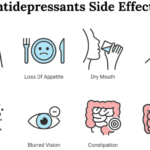
Dive into the world of Selective Serotonin Reuptake Inhibitors (SSRIs) and their role in treating depression. Discover the importance of medication half-life, the risks of serotonin syndrome, and why the chemical imbalance theory of depression is being challenged. Learn about the concerns of overprescription in older adults.
Common Medications That May Cause Harm to Hospice Patients

Medications like anticoagulants, antidepressants, and NSAIDs can cause harm to hospice patients. Learn how to balance comfort and safety with individualized care.
Late-Onset Medication Side Effects: The Importance of Continuous Vigilance and Medication Reconciliation

Explore why side effects from medications can emerge after initial use and understand the critical need for vigilant monitoring and regular medication reconciliation to ensure patient safety and efficacy.
Uncommon Opioid Side Effects to Know: How They Affect You and Your Family
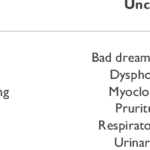
Learn about uncommon opioid side effects like myoclonus and hyperalgesia, and how they impact you and your family. This guide explains these conditions, offers tips for managing them, and highlights the role of hospice in providing comfort and support.
Understanding Dementia Medication Side Effects: A Guide for Families

Discover the potential side effects of dementia medications and how to support your loved one. Stay informed!
The Benefits of Deprescribing Medications in Hospice: A Guide for Patients, Families, and Hospice Nurses
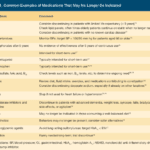
I know how important it is to provide comfort and support during this challenging journey. One aspect of hospice care that often raises concerns is deprescribing medications. In this article, we'll explore what deprescribing is and why it can benefit patients nearing the end of life.
Statins Increase the Risk of Dementia or Worsening Dementia

Pharmaceutical advertisements often highlight the benefits of a particular drug, including its ability to reduce the risk of various health conditions. However, the actual risk reduction these drugs provide may differ from what is portrayed in the advertisements. It is the opinion of the author that if cardiologists and other providers told their patients the absolute risk reduction of statins is 0.8% for all-cause mortality, 1.3% for myocardial infarction and 0.4% for stroke and the side effects of going on a statin include dementia, worsening dementia, confusion, muscle problems, such as aches, pains, weakness, muscle breakdown, falls, nausea, constipation, diarrhea, and increase the risk of type 2 diabetes, would you or anyone else ever agree to take a statin?
Early Detection of Serotonin Syndrome in Dementia Patients: Three Case Studies

Serotonin syndrome is a potentially life-threatening condition caused by an excess of serotonin in the body. Detecting this condition early is crucial, but it can be particularly challenging when dealing with dementia patients due to communication barriers and the complexity of their symptoms. In this article, we will present three case studies that highlight the early detection and successful management of serotonin syndrome in patients with different types of dementia: Alzheimer's disease, vascular dementia, and Lewy Body Dementia.
Understanding Serotonin Syndrome: A Comprehensive Guide

Hospice nurses assess the status of the patient's journey towards the end of life every nursing visit. Situations where a reversible condition can drastically impact the patient and the hospice assessment can occur. If it is not caught, it is potentially mistreated, leading to increased discomfort and a faster death, often involving increased suffering. One of the common clues that someone is getting closer to dying is increased agitation and restlessness.
Are you aware of Serotonin Syndrome?
My Loved One with Dementia

Caring for a loved one with dementia can be challenging. This article provides insights into understanding dementia, its stages, and practical tips for caregivers. Learn about the FAST Scale, validation therapy, and when hospice care might be appropriate to ensure compassionate and effective support.
